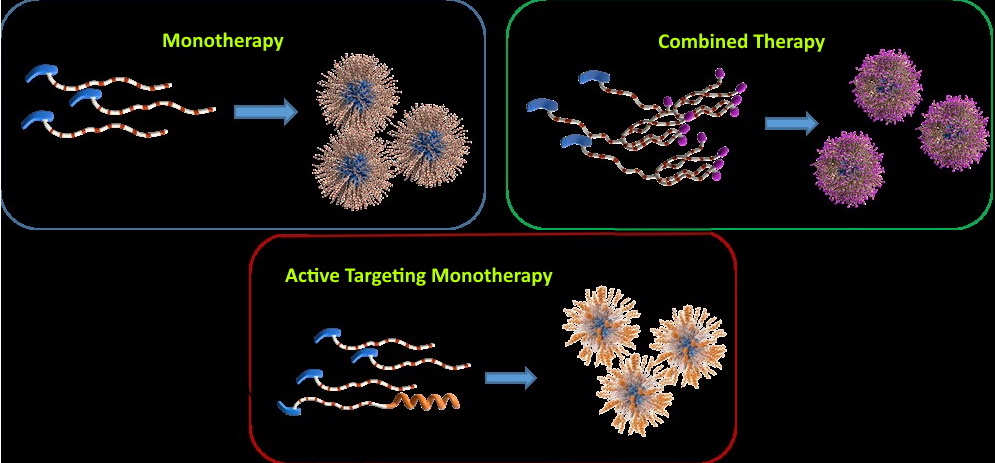Multivalent self-assembled platforms for the delivery of chemotherapeutic drugs
Twenty years ago, the 4 February was declared World Cancer Day with the global challenge of cancer would not be forgotten. Since then, huge progress has been made to understand, prevent, diagnose, and treat cancer.
NANBIOSIS as an ICTS (Singular Scientific and Technical infrastructures) for biomedical research plays a very important role in the fight against cancer.
Dr. Miriam Royo, who leads NANBIOSIS unit 3 of Synthesis of Peptide, explains one of the projects in which the ICTS is involved in relation with cancer therapy.
The improvement of solubility and stability of clinically approved chemotherapeutic drugs still represent a big challenge in cancer therapy. In fact, many of these drugs have low water solubility, which forces to administer larger volume doses to achieve the desired biological effect, and increases the side effects suffered from patients. The active principle can be chemically modified to increase the solubility, and administered as prodrug which, however, has to be enzymatically metabolized to have therapeutic effect and only a low percentage of the free drug is achieved. Moreover, some of the chemotherapeutic drugs are unstable at physiological conditions due to their chemical structure, and rapidly degrades before reaching the tumor tissue, further reducing the effectiveness of the treatment. Drugs commonly used in clinical chemotherapy treatments for advanced colorectal cancer and triple negative breast cancer, such as SN38, 5-fluorouracil (5-FU) and paclitaxel (PTX), have presented these problems, which affect their efficacy and tolerance to treatment by patients.
Drug delivery nanosystems based on biocompatible polyethylene glycol (PEG)-based multivalent platforms conjugated to hydrophobic drugs (SN38, PTX among others) are developed by the Multivalent Systems for Nanomedicine (MS4N) goup of Centro de Investigación Biom´dcia en Red (CIBER-BBN) at the Institute for Advanced Chemistry of Catalonia (IQAC-CSIC). The resulting water-soluble conjugates have also the ability to self-assemble in aqueous media in nanoscale micellar structures improving the pharmacokinetic profile of drugs. In these systems, the intact active principle can be released in a controlled manner thanks to the presence of degradable bonds, between the drug and the polymer, which are sensitive to chemical or biological stimuli, favoring its accumulation in tumor.
Systems containing only one drug (SN38 or PTX) for monotherapy and two different drugs (as SN38 and 5-FU) for combined therapy treatments are developed to improve the therapeutic efficacy of the free drugs and decrease their secondary effects. The multivalence nature of these systems also allows the possibility to add targeting agents, such as tumor specific peptide ligands thus increasing the specificity of the platforms towards the cancer cells. These peptide ligands have been produced at the Synthesis of Peptides Unit (U3) of NANBIOSIS.
This project (RTI2018-093831-B-I00) is funded by MICIN/AEI/10.13039/501100011033 and by “ERDF A way to of making Europe and performed in collaboration with Dr. Ibane Abasolo group of CIBER-BBN at Vall d’Hebron Research Institute (VHIR) and the In Vivo Experimental Platform (U20) of NANBIOSIS under the frame of CIBER BBN intramural collaborative projects (PolyPlaTher, Colocomb and Nanomets).









